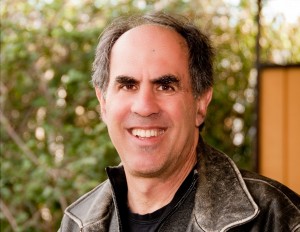
The Conservative Political Action Conference, usually referred to by its shorthand, CPAC, was a memorable occasion for a variety of reasons this year. This year’s event was held on the cusp of what will perhaps be the most pivotal election of our young century. An election in which the fate of the PPACA-otherwise known as Obamacare-arguably the federal government’s greatest encroachment upon personal medical decisions, will ultimately be decided, most likely by voters’ reaction to President Obama’s likely Republican opponent, Mitt Romney, whose own statewide health care reform served as the template for this broadly unpopular federal law.
The ambivalence conservative voters feel towards the GOP frontrunner was merely one of many important currents running through this year’s conference. Of course, there was the electric speech delivered by Andrew Breitbart, which-as always-was preceded by its share of controversy. But there was also a contentious debate over immigration featuring our good friend, Kansas Secretary of State Kris Kobach. He, along with Roger Vandervoort, Executive Director of ProEnglish, debated the merits of our current immigration policy-including the federal government’s lassitude with regard to illegal aliens-with two open borders apologists in a forum moderated by the head of the Congress of Racial Equality, Niger Innis.
High Fences, Wide Gates-the title of the panel, as well as a phrase that famed punk rock musician, entertainment lawyer, and conservative writer Joe Escalante often employs to describe his own immigration philosophy-was perhaps destined to be overshadowed by other events taking place on the weekend of CPAC. However, this discussion bears watching in its entirety because it illustrates the sharp divide that exists between traditional, Kirkian conservatives and libertarians, corporate interests, and certain neoconservatives who anathematize immigration restrictions of any form.
That is why, although agreeing with others who assert that framing this issue as a debate constitutes an insult to conservatives-where is the comparable debate at CPAC between school choice advocates and public school proponents, pro-life activists and those who support abortion on demand, or flat tax supporters and those who want to institute a VAT-I nevertheless feel that it is a worthwhile exercise for a number of reasons.
1. It illustrates the timorous nature of the opposition. They are so insecure in their beliefs, or afraid that nonpartisans on the immigration question can be dissuaded from supporting unfettered immigration, that they need to contest any exposition of skepticism about our nation’s policy of open borders, regardless of the venue.
2. Conversely, it demonstrates that we are not hesitant to defend our philosophy, whether surrounded by opponents in the lion’s den of New York University, or speaking to a group of less overtly hostile conservatives.
3. Finally, and this is the most important point, the persuasiveness of our point of view-which is already shared by a sizable majority of the American public-is on full display. We should never be afraid to defend our views, especially when they are based upon empirical facts and concrete historical evidence. Although the false equivalency organizers of this conference attempted to establish between both sides of the immigration questions is lamentable-although not surprising, considering who currently serves as the head of CPAC-it should not prompt us to abandon the public arena.
I urge you all to watch the immigration “debate” that took place at CPAC. The full video, as well as a host of other fantastic images and great footage taken by our good friend Pamela Hall can be found at The Silent Majority No More. She also covered Day 1 of CPAC, Friday’s festivities, as well as a moving tribute to Andrew Breitbart found in the exhibit hall of the hotel on CPAC’s final day. Read and watch it all.







“our nation’s policy of open borders, regardless of the venue.”
This statement you made above is patently absurd. You may think that the U.S. needs more restrictive immigration laws and you may think that government bureaucrats need more power to enforce our capricious immigration regulations, but it is disingenuous to call U.S. government immigration policy “open borders.”
How can you explain the enforcement actions detailed here if he have “open borders”?
http://www.dhs.gov/xlibrary/assets/statistics/publications/enforcement-ar-2010.pdf
According to 1 poll, 165 million people in other countries want to immigrate here. If we have a policy of “open borders,” where are they?
http://www.gallup.com/poll/124028/700-million-worldwide-desire-migrate-permanently.aspx
Envisioning a goal and seeing that goal to completion are two completely different things. The fact is that if you’re intent upon entering the United States illegally, and have the means to do so, you’re more than likely going to succeed-even if it takes several unsuccessful attempts in order to accomplish your goal. Whatever feeble attempts at interior enforcement or border security once existed have been-or are in the process of being-systematically dismantled, and short of committing an exceptionally heinous crime-and being apprehended in the process-you will not be deported, regardless of your legal status. The people who want to come here but can’t aren’t being impeded by some leviathan-like bureaucratic apparatus, but by their own economic limitations.
Granted, immigrating here legally is more difficult, but even here the United States has the most expansive, generous system of immigration of any Western country in history. Even if you exclude the millions of foreigners effectively granted amnesty under Simpson-Mazzoli, as well as the millions of Haitians and Central Americans to whom the government’s extended Temporary Protected Status, our post-1965 immigration policy has never been replicated anywhere else on the planet. So no, we don’t have “open” borders under the most narrow definition of the term, but if that’s you’re objection then we’re simply arguing semantics, not addressing the real, underlying issues. This is akin to a communist proclaiming that communism hasn’t “failed” because none of the existing or prior Communist states practice communism in the true sense of the word. If you’d prefer me to describe what we have as a “conditionally open” border, then I’m perfectly content to use that term.
“The fact is that if you’re intent upon entering the United States illegally, and have the means to do so, you’re more than likely going to succeed-even if it takes several unsuccessful attempts in order to accomplish your goal.”
That is akin to saying there is an open-murder policy or an open-shoplifting policy. If someone really wanted to murder somebody, they will despite what the laws are. There are punishments, as there are for violating immigration laws, but under your odd definition those don’t seem to matter. That’s not to equate an immigration violation with murder. The former is a violation of a complex administrative bureaucracy, the latter actually hurts someone.
And, as what you say above is true about intent to come here, then that is an admission that the immigration laws are doomed to failure. What’s the point in having impossible to enforce laws that violate our freedoms and make us poorer? No point.
Also, words have meanings. When you say “open borders,” I assume that you mean the literal term.
“Granted, immigrating here legally is more difficult, but even here the United States has the most expansive, generous system of immigration of any Western country in history.”
Again, not true. America’s past was far more open to immigration than it is today. We had, literally, open borders for the first 90 years of our Republic. During the 19th century virtually every country in Europe had the same policy. Their policies were far more open, far more liberal (classical sense), and far more generous than America’s system is today.
And it’s not just more difficult legally. For the vast majority of people who wish to immigrate here, there is simply no way to do it. At all.
I can’t help but think, based on your writings here, that you know very little about America’s immigration history or how the law actually works.